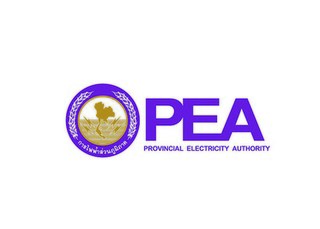
Khon Kaen is the capital of Khon Kaen province and the fourth largest city in Thailand. It is one of the four major cities of Isan, Thailand, also known as the "big four of Isan", the others being Udon Thani, Nakhon Ratchasima, and Ubon Ratchathani.
Thai Airways Company or Thai Airways was the domestic flag carrier of Thailand. Its main base was the domestic terminal at Don Mueang International Airport. Its head office was located in Pom Prap Sattru Phai, Bangkok. In 1988, Thai Airways merged to become Thai Airways International.

The national museums of Thailand are operated by the Fine Arts Department of the Ministry of Culture, and are responsible for the safeguarding of state-owned historical and cultural artefacts. In 1926 King Prajadhipok created the Royal Institute of Art, Literature and Archaeology, which then opened the museum in Bangkok at the Wang Na palace. Today there are 43 national museum branches operated across the country.

The State Railway of Thailand (SRT) is the state-owned rail operator under the jurisdiction of the Ministry of Transport in Thailand.

The Christian Foundation for the Blind in Thailand (CFBT) is a non-profit charitable organization helping blind people and employing staff in Thailand regardless of gender, race or religion. It was founded in 1978 by Prayat Punong-ong, a blind man who taught 13 blind children in a rental house in Khon Kaen Province.

The Thai highway network follows the left-hand traffic rule of the road. The network is the twin responsibility of the Department of Highways, and the Department of Rural Roads, under the oversight of the Transportation ministry of Thailand. Public highways are also called public roads, especially when part of urban streets. The network spans over 70,000 kilometers across all regions of Thailand. Most are single carriageways. Dual carriageways have frequent u-turn lanes and intersections slowing down traffic. Coupled with the increase in the number of vehicles and the demand for a limited-access motorway, the Thai Government issued a Cabinet resolution in 1997 detailing the motorway construction master plan. Some upgraded sections of highway are being turned into a "motorway", while other motorways are not being built from highway sections.

Kannithi Aviation Co. Ltd, operated as Kan Air, was a small airline with its hub at Chiang Mai Airport. Kan Air operated charter and scheduled services in Thailand. As of September 2016, Kan Air flew nine routes. Flights from Chiang Mai were to Mae Hong Son, Pai, Nan, Khon Kaen, Ubon Ratchathani, Phitsanulok, Hua Hin, Chiang Rai, and U-Tapao. On 21 April 2017, Kan Air suspended all of its operations.

R Airlines, legally incorporated as Skyview Airways Co. Ltd., was a Thai charter airline headquartered in the Don Mueang District, Bangkok and based out of nearby Don Mueang International Airport. It ceased operations on 18 February 2018.

Nakhon Ratchasima is the capital of Nakhon Ratchasima province and the third largest city in Thailand. It is one of the four major cities of Isan, known as the "big four of Isan". The city is commonly known as Korat, a shortened form of its name.

The 43rd Thailand National Games were held in Nakhon Ratchasima, Thailand from 9 to 19 December 2014. Competition included 43 sports and 77 disciplines. These games held in the 80th Birthday Sport Center, Suranaree University of Technology Sport Center. Nakhon Ratchasima also hosted the 2007 Southeast Asian Games.
The 40th Thailand National Games were held in Khon Kaen, Thailand from 3 to 13 March 2012 after being postponed by the 2011 Thailand floods, with competition in 39 sports and 77 disciplines. These games were held in Khon Kaen University Sport Center. Khon Kaen also hosted the 1992 Thailand National Games
The 39th Thailand National Games were held in Chonburi, Thailand from 5 to 19 December 2010, with competition in 39 sports and 76 disciplines. These games were held in the Institute of Physical Education Chonburi Campus Sport Center.

The 1967 Thailand National Games, officially known as the I Thailand National Games, and commonly known as Phra Nakhon 1967, was a multi-sport event held in Bangkok, Thailand, from 1 to 5 November 1967 with 103 events in 15 sports and disciplines featured in the games. This was Bangkok's first time to host the Thailand National Games. A total of 716 athletes from 5 regions participated in the games.

The Provincial Electricity Authority (PEA) is a Thai state enterprise under the Ministry of Interior. Established on 28 September 1960 by the Provincial Electricity Authority Act 1960 —which are served by the Metropolitan Electricity Authority.

The 2021–22 Thai FA Cup is the 28th season of a Thailand's knockout football competition. The tournament was sponsored by Chang, and known as the Chang FA Cup for sponsorship purposes. The tournament is organized by the Football Association of Thailand. 94 clubs were accepted into the tournament, and it began with the qualification round on 29 September 2021 and concluded with the final on 22 May 2022. The winner would have qualified for the 2023 AFC Champions League play-off and the 2022 Thailand Champions Cup.
















